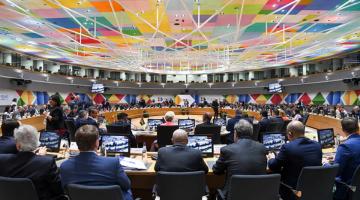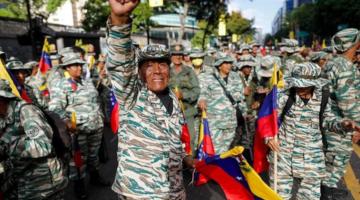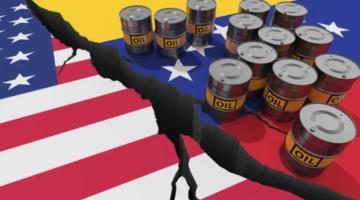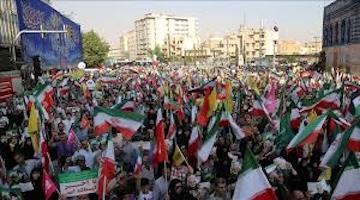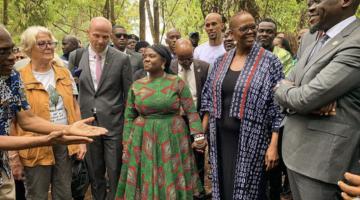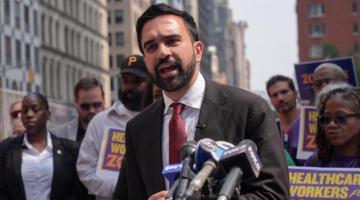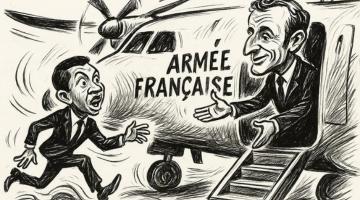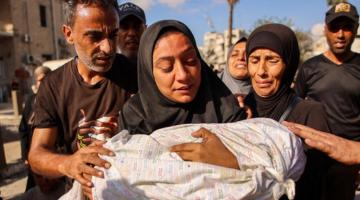Over a month after the killings of four young boys in Ecuador, now known as the Guayaquil Four, the community is still reeling but is also activated. This case has sparked a movement that is raising awareness and organizing against the oppression of Africans in that country.
Following the forced disappearance and extrajudicial killings of four AfroEcuadorian boys aged 11 to 15 in Las Malvinas neighborhood in southern Guayaquil, a predominantly African and impoverished community, families of the murdered boys, friends, human rights organizations and AfroEcuadorian popular organizations have come together to forcefully denounce this horrific state crime.
On January 8th, one month after the disappearance of the boys, a chigualo commemorative march was held throughout the neighborhood of Las Malvinas. A chigualo is an ancestral African tradition from coastal Colombian and Ecuadorian communities practiced when a child dies. Black Agenda Report contributor, Clau O’Brien Moscoso, was present for the activities and sat down with Uriel Castillo, national coordinator for the National AfroDescendant Ecuadorian Movement (MANE in its Spanish initials). Castillo has been supporting and leading the burgeoning movement around this case and, in general, for lives free of criminalization and militarization from the state, particularly for AfroEcuadorians.
VIDEO
Claudia O’Brien Moscoso: First, can you introduce yourself and your organization’s role in this particular case?
Uriel Castillo: My name is Uriel Castillo. I am an African leader in community and cultural processes and the national coordinator of the National Afro-descendant Ecuadorian Movement (MANE), this national organizational initiative of Afro convergence and now in particular, we are working with the Solidarity Committee for the Guayaquil Four. This is an initiative that was born from us and that is gaining a lot of strength due to the interest it has awakened in the organizations and the leaderships of the general citizenry in Ecuador with respect to this case that implies the forced disappearance of the children.
Up until today, several hearings have been held. In a hearing approximately 3 weeks ago, the judge ruled on the forced disappearance of the four children from Las Malvinas in the south of Guayaquil and that already directly implicates the State. And then, a week and a half ago, it was publicly declared that the bodies found near the military base in Taura in a state of charring and decomposition were the bodies of the children. The funeral in the suburb of Guayaquil was held in December, but today the situation changes completely and on the one hand, the parents continue to cling to the possibility that this is not their children and, therefore, they want to ask for international support to do a new DNA test on the children and verify because they do not trust the Ecuadorian State.
And on the other hand, with respect to (broader) society, to what we call racism, which clearly existed without a doubt, there was a criminalization of ethnicity and afrophobia and the criminalization of poverty as well. We proposed as a Solidarity Committee with the Guayaquil Four to put forward a proclamation to do a transparent and public social debate on the security policies that are involved within what the State has called Plan Fenix . That has not been made transparent. That has not been publicly debated. It is not known what the security policy consists of. Since the President established the decree, where on January 9, 2023, he establishes Ecuador as a society in an “internal armed conflict,” a security policy is established that has not been debated, it is not known what this policy entails.
The second thing is that we are interested in knowing what are the security protocols with which the armed forces enter Ecuadorian civil society? What are the security protocols with which the armed forces come into contact with the Ecuadorian citizen and, above all, when they enter the poor or impoverished sectors of society. If there are protocols, it means that these soldiers went against protocols and, therefore, we have to know who gave the order, because the chain of command is fundamental.That is the second element, and if the protocols do not exist, then, obviously, it immerses us in a struggle of other social proportions against the Ecuadorian State and the joint command of the Ecuadorian army.
The third element is not minor in this, because there are serious doubts about the role of the armed forces not only because of what has happened, but because of the history of Ecuador. In the history of Latin America, the armed forces have never solved any security problem when they have entered the streets. We already know this in the 1990s. It was the decade in Ecuador, the decade of disappearances.Therefore, we are interested in knowing how this process of fighting crime is progressing, what are the results that, at the end of the first year of this policy of having the armed forces in the streets of Ecuador has achieved, that is, an accountability of the process. There are no weekly, monthly, semi-bi-monthly or quarterly reports. Nothing exists.That is to say, this is a clear sign that there is a death squad, that this State, this Government has a death squad and that, unlike what happened in the 80s with León Febres Cordero , the legendary Lion with his death squad. Nobody knows it. It is underground, it is an anonymous squad that is in the shadows, but everything indicates that this death squad exists and it is not directed towards criminals. There is no right to defense, it is simply assumed that what the armed forces do is fine. If 60 or 70 young people disappeared, that is fine.
CO: What are the goals and objectives of the Solidarity Committee in the short term and long term? What does it want to do, what are the demands? You spoke about a transparent and publicly debated process for Plan Fenix. But what are the other objectives? Not only for the relatives, but for Ecuadorian society as a whole?
UC: Well, the macro objective of this committee is to become a great space for denunciations and follow-up regarding the disappearances and the State’s security policy.
For example, a fundamental key element is the internationalization of the task. We believe that it is fundamental to find international allies and bring international attention to this matter.
Another specific objective is to mobilize the population. We have to raise awareness of what is happening, and part of this awareness has to do with the event that we hope to have on tomorrow January 8th in the community, which is also a powerful cultural message for Ecuador and for Ecuadorians.
We hope that it is also for the world, in the sense that it is a society that expresses itself equally. I tell you this because I believe that it is essential that African people have an ancestral culture which we are using to honor these boys. It has to do with when they die. Almost everything is done with music. And when an adult dies, they sing praises. When a teenager dies, lullabies are sung, but when a child dies, they sing chigualos to him. These chigualos are something interesting because it is a song, not for the dead child but for the living. It is a message, it is a kind of reflection for the living, trying to make them think for a moment why the child died. That child should not have died. Then those who are alive should reflect. Why did he die? That is the cultural purpose of the chigualo. That is why we believe that a powerful message for society, that is, it is a message about the concept of death as a cross-cutting axis of society, but that this child must be reflected(ed) on. The lyrics are like this: half sad, half joyful. The ladies sing and the others play bass drums and other instruments all night long. Here it is not going to be an all-night event. We hope it will be 3 or 4 hours. The meaning of the message, we hope that it is massive, that people from all over the city come, at least, and that it is done in the community; we seek to raise awareness.
The specific objective is that we can structure actions that make it impossible for the State to purify itself, for the armed forces to purify these acts, and that has to do with a central element that we have already discussed repeatedly within the committee. It cannot be that a government of criminals who murder children in this way and then lie, that is, not only murder, but lie, develops an entire campaign from the executive, trying to distort the truth. In other words, questioning the innocence of the children, the family, and the community.
One can see, therefore, that there is direct guilt on the part of those in the executive branch, those in the armed forces, the head of the joint command, General Vela , who promotes a whole campaign against the children, the family, and the community. Therefore, one of the elements that coincides with this, but which becomes key for us, is that a group of criminals of this caliber cannot continue to govern the country. Therefore, although this is not political, in the sense that it is not partisan nor is it inclined to one tendency, it is clear that this government should not have those powers because it will simply continue to kill.
CO: Can you discuss a little more about this criminalization of Afro communities and territories and how the militarization of the State, for example now the Galapagos Island is being given over to the United States armed forces, impacts your communities? The Southern Command is building more bases and President Daniel Noboa even wants to change the Constitution, even against the popular referendum. So, how do you see the role of the United States in what is happening?
UC: Yes, the role of the US is direct and the 16 military personnel involved are only the last link in the chain. This would not have happened if the American embassy did not approve of this criminality. This is directly involved and we are finding out if the doctrine and policy that is being applied is not already designed by the United States through its Department of Defense. One of the things that has happened with the last 3 governments, but particularly this one, has to do with the violation of the Constitution and the laws. It is like Noboa does not perceive that there is a republic, that the Constitution does not exist, but it directly prohibits this and it does not allow them to interpret it. It expressly prohibits the presence of military bodies or foreign military bases within the national territory. They have tried to put it in a popular consultation and lost (a popular referendum showed Ecuadorians do not want foreign military bases). It's a totally secondary issue and this is leading us to an absolute militarization. We have lost the state; it stopped being a failed one and simply doesn't exist. The State was totally cut off by the politics of the North American empire, by geopolitics and that's why the Galapagos Island was handed over and it was cut off by drug trafficking and captured by the oligarchy. It's no longer a failed state, the state simply isn't there and it astonishes me.
I listen to the statements of General Vela. He says the following with respect to the kids. They say that the forces, this platoon, this brigade of 16, were going south to customs escorting a load from a private company to customs, returning it because it was a load of liberal contraband. We don't know which company it is because the armed forces were making it public. He was doing work for a private company, he didn't even know what product they were carrying and he says that they left the product there at customs and they returned. The lawyer repeats the same story, the same story with nuances. But what is surprising is that the general says it and he says that on the way back they heard, they didn't see. And they say that they heard people shouting ‘thief, thief, they are stealing, they are stealing.’ And then they see the boys and they develop the whole military operation - they take the street, where they put the van, they enter in the opposite direction.
He doesn't tell it with these details, but it's what the general says that they have passed by and that they hear, and then they go and grab the boys. He says this, they put them in the truck and take them away but the story doesn’t add up. That is violent. I mean, the message being they can take whoever they want to take and leave them wherever they want. They say that in Taura there is a mafia and that they have their hands on the books. Well, there is the military base. The military base is in Taura. How is it possible that there is a mafia there and they don't know how dangerous it is?
Then you see the complicity and they insist that the boys were stealing in the video that appears on the networks. That video is around 30 seconds long, if I'm not mistaken. But that video is actually almost 4 minutes long or they have cut it. And in 4 minutes this is an area where there are many, many cameras and at 4 minutes there is no trace of them. There is no report from the boys either, that is, there was no report from them that said we are taking so-and-so, so-and-so, so-and-so, so-and-so because they are stealing, and we left them in such a place. There is none of that. It is very clear that this is a military operation.
CO: Right; was this a military operation? What does it mean? It implies that the State is supposedly an instrument to guarantee the human rights of its population. So, if we see that the State has to guarantee those rights; not only are they not guaranteeing them, but actively violating them. How can you as MANE and the solidarity committee - how can you open that space so that the people themselves are the guarantors of human rights centered on the people, on the rights of the people?
UC: There is a task, obviously, that has to do with raising awareness and everything we can do at the territorial and communicational level. But there is also a level in this that has to do with politics because we have realized these last governments and in particular, this government, is that if you do not have the capacity to manage the State and its policies, there are no real possibilities of change, at least not sustained. Because, if the violators of rights, the state criminals take the list, it is very difficult for them to fight from the organizational perspective, which is an important task. We have to raise awareness, generate spaces of convergence, and the committee is an example of this but that has to necessarily take up the political issue. I’m talking about the politics that builds society, that builds political subjects and we see this clearly.
Today, we have an immediate job that has to do with ensuring that this group does not return to the Government.There was a group called the MPD, the Popular Democratic Movement. That movement was founded by Jaime Hurtado, a big black man, and he was its top leader. And the MPD was an important expression of the left in its time, in the 80s. He was a presidential candidate for the MPD, and he was fourth in Sorolla's term. At that time, it was all a feat. This group, this movement historically managed the teaching profession.
So when Rafael (Correa) arrived, the first time in 2006, 2007, he arrived with the support of everyone, including the MPD. The MPD did everything possible to bring the left to the presidency. But once Rafael arrived, I don't know what happened there, but instead of entering into a dialogue to regulate issues, he simply broke it up. “I don't need the MPD,” and he launched himself against the MPD to the death. He destroyed its political project around the teachers and the teaching profession of the united front. He finished it off and created a parallel organization called The Teachers' Network.
And he took away the severance fund. He made legislation. This was a counterweight. Well, that destroyed the entire organization of the MPD and took away the severance fund. It was a total break. There was legislation so that they would never be created again. That was about severance pay and it ended up destroying the movement. It was not an isolated issue, because something similar happened with the indigenous people. There were obviously historical indigenous people who were persecuted. Their headquarters were taken away, their politics were taken away- another rupture. Until now we do not understand at some point Rafael has to explain what happened there, why those strange ruptures and, above all, the last aspect, which is the cherry on the cake, which was the social demobilization. That happened and that is why the militant left-wing people do not want to be talking anymore.
They do not know the history of politics. The Social Christian Party in Ecuador was something. It was the machine. It was a brutal machine in the 80s and 90s. Today, it barely has 5 assembly members. Three mayors. Yes, it was the party of what was known as the extreme right of Ecuador. Now, this has become the center, seeing the right that is now governing with Lazo and Noboa. The Christian social movement has become the centre-right and the moderate right. This is terrible.
CO: Are there any other goals or analysis MANE thinks is important for us to know?
UC: Today the Afro agenda takes on a decisive connotation for Ecuadorian society because this agenda forces the State to change its policy and it is an issue for Ecuadorian society. More than the Afro clergy organizations, there are social organizations and they are mestizos, what we call mestizos, which has to do with indigenous background or cholos. They are the ones who have given the most in front of these men. They are the ones who express themselves the most: indignation and struggle more than organization and leadership. Therefore, the Afro agenda today is fundamental. A new Afro-descendant decade has just been approved by the United Nations. Is that fulfilled in Ecuador, that new decade? Well, no. That it is assumed as a key programmatic element of the State because it is a reference for the improvement of the State as such. The other thing has to do with the Census (which provides funding to communities based on population size).
The Census gives another look at the same problem. The physical disappearance of children is a perspective of what is happening. Another perspective is the conceptual disappearance. Yes, the conceptual disappearance, the conceptual extermination, the ideological extermination has something to do with the census. These two elements go together. The two elements are part of the same matrix that the Ecuadorian State must recover and make more efficient, to be more complete, to better represent the interests of the people. And that’s ultimately what we want - dignified lives.
Spanish version here . Clau O'Brien Moscoso is an organizer with the Black Alliance for Peace in the Haiti/Americas Team. Originally from Barrios Altos, Lima, she grew up in New Jersey and now lives between both countries.

